General Blog Posts
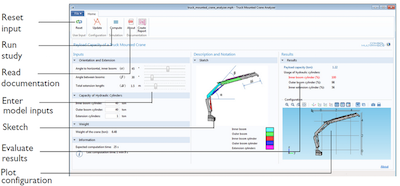
App: Improving the Payload Capacity of a Truck-Mounted Crane
Manufacturers and engineers looking to optimize the payload, or carrying, capacity of a truck-mounted crane can easily test parameters with a simulation app. Take a look at our demo app example.
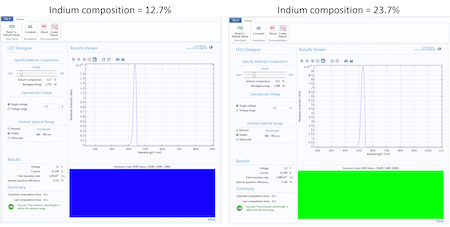
Creating a Wavelength Tunable LED Simulation App
Learn how to turn a model of an LED device into a user-friendly simulation app, which can then be used to assess the impact of different designs on the LED’s emission characteristics.
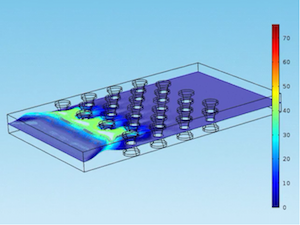
Sensing the Bio in Biosensor Design with a Simulation App
The Biosensor Design demo app predicts the results from measurements of a biomolecule’s concentration (or activity) from an understanding of this molecule’s attachment to an enzyme.
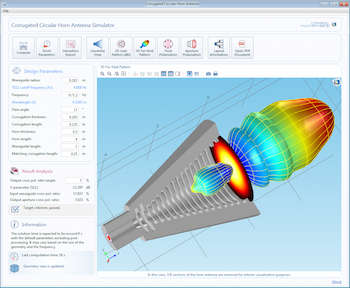
How to Create a Simulation App: Horn Antenna Demo
Get a comprehensive overview of what a simulation app is. We use the Corrugated Circular Horn Antenna Simulator demo app to demonstrate some of apps’ many benefits.
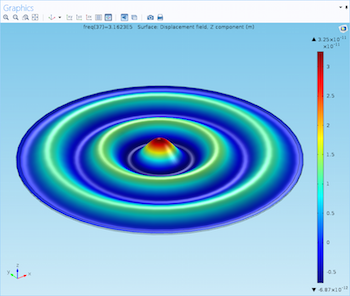
Using Deformations to Visualize Physical Motion
Postprocessing and visualization can help enhance your understanding of simulation results, and using plots to illustrate physical motion allows you to put everything into perspective.
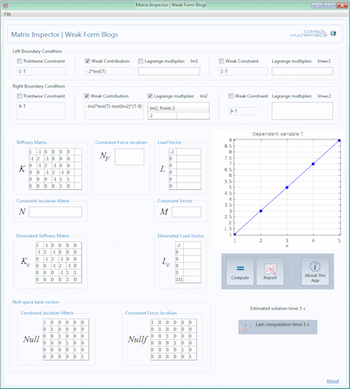
Implementing the Weak Form with a COMSOL App
First we implement the weak form equation and examine its matrices. Then we create a simulation app that displays all relevant matrices at once, arranged logically on one screen.

What to Expect from COMSOL Multiphysics Version 5.1
COMSOL Multiphysics® version 5.1 introduced 20 demo apps and many new features and functionality updates to numerous products. Get an overview of what’s new here.
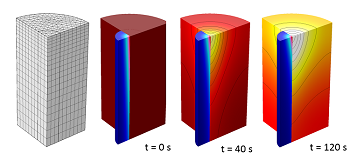
Modeling Laser-Material Interactions with the Beer-Lambert Law
Did you know that you can use the Beer–Lambert law to model laser–material interactions in COMSOL Multiphysics®? Learn how here.
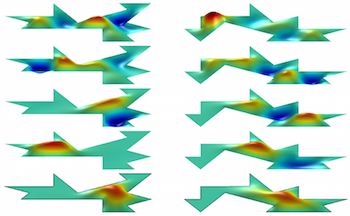
Can We Hear the Shape of a Drum?
Over half a century ago, Mark Kac gave an interesting lecture on a question that he had heard from Professor Bochner ten years earlier: “Can one hear the shape of a drum?”
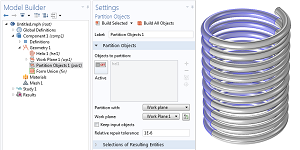
Improving Your Meshing with Partitioning
It can be tedious to subdivide your CAD geometry into a finite element mesh. In this blog post, we demonstrate how to use a manual meshing method called geometric partitioning to do so.
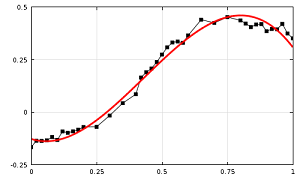
Curve Fitting of Experimental Data with COMSOL Multiphysics
Have you ever had to work with experimental data in a model? Learn how to fit smooth curves and surfaces to experimental data using the core functionality of COMSOL Multiphysics®.

Your Introduction to the COMSOL Server™ License
COMSOL Server™ is a deployment product that can be used to share your simulation apps with colleagues, customers, and design teams. Learn about what you can do with COMSOL Server™ here.

Running COMSOL Multiphysics® with Cloud Computing
You want to run some HPC simulations in COMSOL Multiphysics®, but don’t have access to a cluster. What can you do? One option is cloud computing. Learn more about it here >>
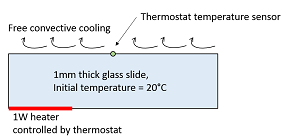
Implementing a Thermostat with the Events Interface
Hot or cold? You can use the Events interface in COMSOL Multiphysics® to implement a basic on-off thermostat in your model for controlling a heat load. Get a demonstration of how to do so here.

Modeling a Periodic Heat Load
Interested in modeling periodic, or pulsed, heat loads? Modeling such a situation accurately and efficiently in COMSOL Multiphysics® is simple with the Events interface. Learn more…
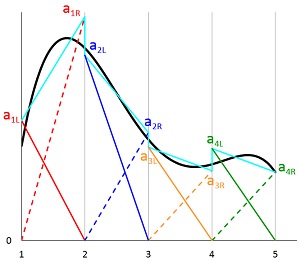
Discretizing the Weak Form Equations
In another installment of our blog series on the weak form equations, get an overview of how these equations are discretized and solved numerically in the COMSOL® software.
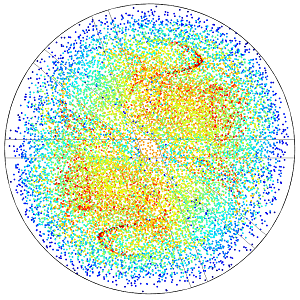
Application-Specific: Polar, Far-Field, and Particle Tracing Plots
When postprocessing your electromagnetics models, you can use polar, far-field, and particle tracing plots to effectively display your results. Learn how to use these 3 plot types here.
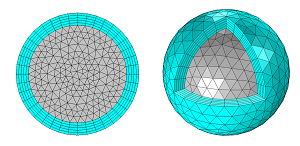
Using Perfectly Matched Layers and Scattering Boundary Conditions for Wave Electromagnetics Problems
Learn how to use scattering boundary conditions and perfectly matched layers to truncate domains for your wave electromagnetics problem — and which technique is best for your modeling scenario.
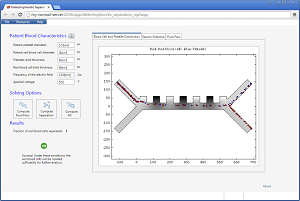
Dielectrophoretic Separation
Dielectrophoresis is a phenomenon in which an electric field is used to control the movement of electrically neutral particles. Learn about how to model this effect in both DC and AC fields.

How to Use COMSOL Multiphysics, a Tutorial Video
New to running simulations in COMSOL Multiphysics®? Get a preview of a step-by-step tutorial video that demonstrates how to set up and solve your first model.
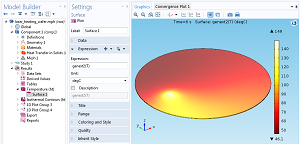
Using General Extrusion Operators to Model Rotation
You can use the General Extrusion operators in COMSOL Multiphysics® to simulate rotating objects exposed to loads. A common real-world example of this is rotisserie-style foods.
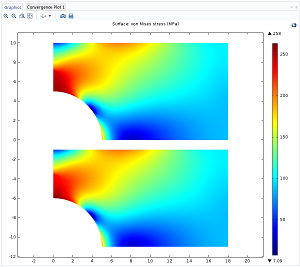
Introducing Nonlinear Elastic Materials
Examples of nonlinear elastic material models: Ramberg-Osgood, Duncan-Chang, Hardin-Drnevich, Power law, and more. We discuss how to apply nonlinear elastic materials in your analyses.
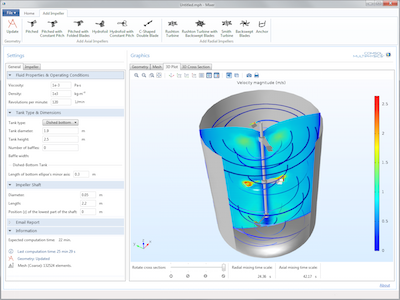
Geometry Modeling in Simulation Apps
See how to use cumulative selections and geometry parts when creating simulation apps that can be used to model geometries based on parameterized CAD models.
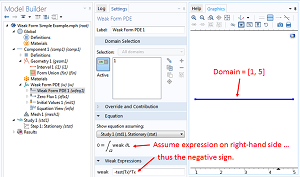
Implementing the Weak Form in COMSOL Multiphysics
In Part 2 of our series on the weak form equations, we demonstrate how to implement and solve these equations numerically using COMSOL Multiphysics®.
